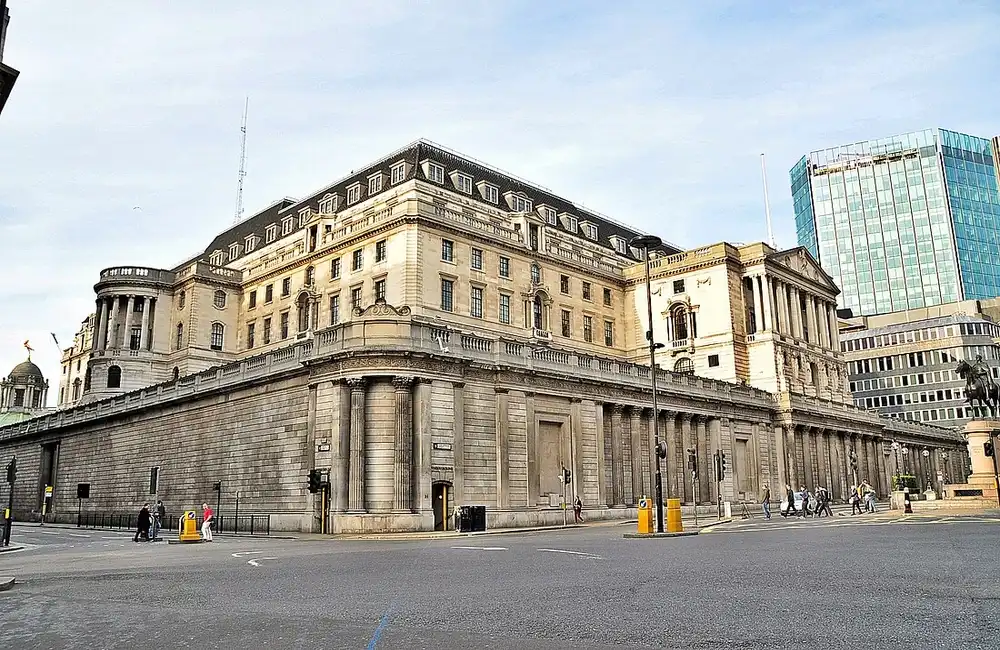The most recent Reuters poll gathered between April 16–23, 2025 reveals troubling insights into the UK economic situation.
The survey involving 25 economists showed a substantial decrease in UK business sentiment. The downturn has been driven by global trade tensions which have emerged from U.S. tariffs implemented by President Trump. The challenges have far-reaching effects across multiple sectors resulting in economists lowering UK growth predictions for 2025 to a median of 0.9%. The UK business climate faces significant challenges because of declining private sector activity and sustained inflationary pressures.
Survey Findings
The Reuters poll demonstrates that UK economists feel very negative about their outlook. All surveyed experts expressed concerns about deteriorating business sentiment with some describing it as "very negative." The shift in sentiment arises from heightened uncertainty triggered by global trade disputes along with rising operating costs and a slow economic recovery.
Impact of U.S. Tariffs
The United States' trade policy direction serves as the primary driver behind this economic sentiment. President Trump's 10% tariff on global products shows to be especially harmful to the UK economy because it exports a substantial amount of goods overseas. UK exporters now face higher operational expenses alongside intensified competition which has weakened their market potential in one of the world's major markets. Manufacturing and agriculture sectors have experienced significant impacts from these challenges as they report lower order volumes and struggle to broaden their export markets.
Revised Growth Forecasts
Economic challenges have resulted in substantial changes to growth forecasts. The latest economic projections show that UK GDP will grow only 0.9% in 2025 which represents a reduced estimate from previous predictions. More than 40% of surveyed economists have adjusted their growth forecasts downward causing stronger worries about the UK entering a slowdown period. The UK growth forecast stands in contrast to global economic trends which show its increased susceptibility to trade fluctuations.
Private Sector Activity
Private sector activity has also declined dramatically. April showed the UK PMI composite output index at 48.2 which marked its weakest performance in 29 months. A reading below 50 means there is contraction which makes it the most obvious indicator so far of stagnation across sectors like manufacturing and services. Uncertainty about trade conditions and policy stability leads SMEs to limit their hiring and reduce capital investment.
Inflation Expectations
The economy faces multiple challenges yet inflation expectations continue to persist at unnervingly high levels without showing signs of reduction. Experts predict the highest inflation rate for the upcoming quarter will reach 3.3%. Consumer spending remains strained due to high food costs and elevated energy bills. The inflation environment remains constrained by weak private demand while global supply-side issues persist, creating a pessimistic outlook for households and businesses that depend on discretionary spending.
Bank of England's Response
The Bank of England implemented a highly accommodative monetary policy to tackle these economic challenges. The Bank of England reduced interest rates by 75 basis points since August 2024. Experts predict that the Bank will maintain its quarterly rate cuts during 2025 to boost demand and reduce borrowing stress for businesses and households. The positive effects of these monetary measures face potential limitations because global challenges continue to create an unfavourable economic environment.
Government's Fiscal Strategy
Chancellor Rachel Reeves' fiscal strategy operates in conjunction with monetary policy to stabilise public finances while tackling economic instability. The 2024 Budget announced a £40 billion tax rise together with £28 billion in yearly borrowing to fund both infrastructure projects and green initiatives. Experts delivered mixed feedback about these initiatives because they remain uncertain about their effects on private sector trust and future economic competitiveness. Experts state that maintaining fiscal sustainability while providing economic support constitutes a challenging balancing act during times of slow economic expansion.
Sectoral Impacts
The recent economic turmoil produced uneven impacts across different industry sectors. Manufacturing stands as one of the most affected industries, especially those dependent on global export markets and extended supply chains. Manufacturers face increased difficulties due to both rising input costs and a reduction in demand. The services sector which usually propels UK economic growth now shows reduced activity because businesses have reduced their spending on non-essential items. The logistics and technology sectors have shown relative strength despite the current volatile environment.
Global Economic Context
The UK faces increased difficulties thanks to a global economic slowdown. The International Monetary Fund (IMF) revised its 2025 global growth projection to 2.8% due to reduced trade flows and ongoing inflation issues along with geopolitical instability challenges. Because the UK relies on trade, these challenges deepen its economic vulnerability and underline the need to partner with dependable and thriving nations.
Outlook for 2025/26
The UK must navigate substantial fiscal and economic challenges in the near future. Weak growth sustained over time together with high inflation and reduced private sector activity make policymaking more difficult. The government confronts challenging decisions between maintaining fiscal discipline and increasing expenditures to bolster a weak economy. The Bank of England needs to measure the extent to which it can further loosen monetary conditions while maintaining investor confidence.
Businesses must exercise caution and flexibility to successfully manage through these unpredictable times. Organisations that create innovation and sustain resilience may discover new opportunities within chaos but will need government assistance and policy consistency to determine public sentiment and economic projections.
Closing Thoughts
This analysis brings together expert industry insights along with reports from the IMF and the Office for Budget Responsibility to highlight the multiple domestic and international forces determining the UK economic forecast for April 2025. How the UK economy performs in the upcoming years will be determined primarily by decisions made in the next few months.
















